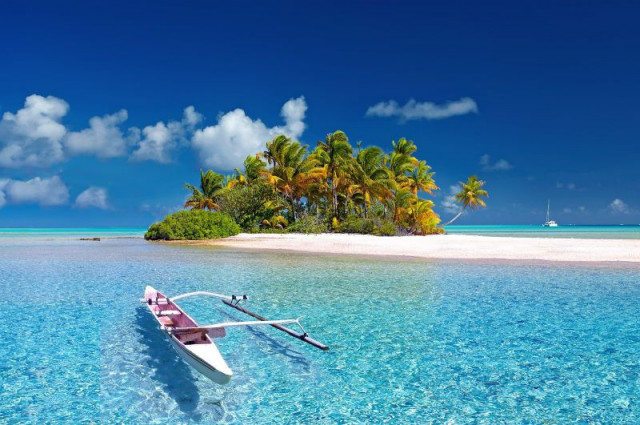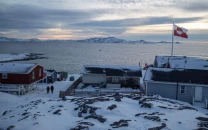UN chief warns Pacific nations of rising seas, urges swift fossil fuel phase-out
According to a report, the relative sea levels in the Southwestern Pacific have risen more than the global average

UN Secretary-General Antonio Guterres on Tuesday warned that Pacific island nations face severe threats from rising sea levels due to climate change and called on the international community to end reliance on fossil fuels.
Speaking at a gathering of Pacific Island leaders in Tonga’s capital Nuku’alofa, Guterres emphasizing the dangers posed by increasing ocean levels.
“This is a crazy situation: rising seas are a crisis entirely of humanity’s making. A crisis that will soon swell to an almost unimaginable scale, with no lifeboat to take us back to safety,” Guterres warned.
“But if we save the Pacific, we also save ourselves. The world must act and answer the SOS before it is too late,” he added.
Underling that global average sea levels are rising at rates unseen in the past 3,000 years, Guterres stated: "The ocean is overflowing, and the consequences are catastrophic."
“The reason is clear: greenhouse gases, overwhelmingly generated by burning fossil fuels, are cooking our planet. And the sea is taking the heat, literally,” he said.
‘Pacific Islands in grave danger’
Guterres pointed to the alarming findings from two newly released UN reports: the World Meteorological Organization’s report "State of the Climate in the South West Pacific," and the UN Climate Action Team’s report "Surging Seas in a Warming World."
Both reports underscore that “changes to the ocean are accelerating, with devastating impacts.”
He further said that the reports confirmed that “relative sea levels in the Southwestern Pacific have risen even more than the global average, in some locations, by more than double the global increase in the past thirty years.”
The UN chief said that Pacific islands are "uniquely exposed” as average elevation is just one to two meters above sea level, and “where around 90 percent of people live within 5 kilometers of the coast and half the infrastructure is within 500 meters of the sea.”
“Without drastic cuts to emissions, the Pacific Islands can expect at least 15 centimeters of additional sea level rise by mid-century, and more than 30 days per year of coastal flooding in some places,” Guterres noted.
Call for global action
He called on global leaders to take immediate action, urging them to drastically reduce emissions, phase out fossil fuels, and increase climate adaptation investments.
"Only by limiting warming to 1.5 degrees Celsius do we have a fighting chance of preventing the irreversible collapse of the Greenland and West Antarctic ice sheets," he said.
Guterres also expressed frustration at the lack of action from G20 nations, which he noted are responsible for 80% of emissions.
“We absolutely need all G20 countries to come together, to use the best technologies available within the G20 to use the financial resources that exist within the G20 and in multilateral development institutions, and to have a concerted global action to have a drastic reduction of emissions in until 2030.”
“If that does not happen, we will be in an irreversible situation with absolutely devastating consequences,” he warned.



















COMMENTS
Comments are moderated and generally will be posted if they are on-topic and not abusive.
For more information, please see our Comments FAQ